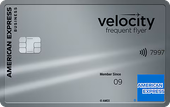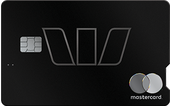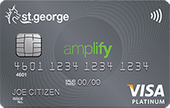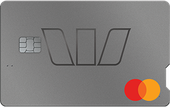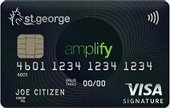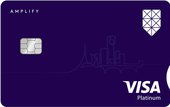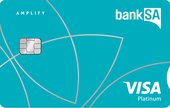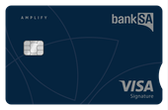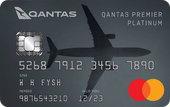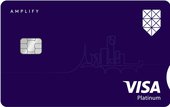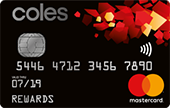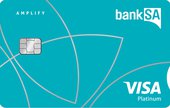If you've ever read a travel blog or watched a travel vlog, then you'll know what you can do with credit card sign up points. Read on for more information on how they work.
What is a credit card sign up bonus?
A credit card sign up bonus is an incentive offered by card issuers to new cardholders, in an effort to gain new business by attracting those who have never held a card before, or by wooing others away from their existing card.
In the case of rewards points and frequent flyer points cards, the bonus normally takes the form of tens of thousands of points, which would normally take years of card spending to acquire.
Since points can usually be redeemed for account credits (effectively cash), retail spending vouchers and airline flights or seat upgrades, they are a very alluring incentive.
Sign up vs first purchase vs welcome bonus
These two terms are in fact used more or less interchangeably. Some banks also call these offers their welcome bonus.
- Sign up bonus. While the term 'sign up bonus' implies that all that is required is for the new cardholder to apply and be approved in order to earn the bonus, the fact is that most offers of this kind demand that the new cardholder spends a qualifying amount within a short period after card account approval.
- First purchase bonus. A typical condition would be for the cardholder to spend $3,000 using the card within 90 days of account approval.
- Welcome bonus. A generic term that describes any kind of credit card sign up or first purchase bonus points offer.
These targets are rarely difficult to achieve, and are ranked according to card level, with the more expensive, black and premium cards offering larger bonuses and usually having higher spending targets, in line with the likely income profile of the cardholder.
How to compare sign up bonus offers
While some people are only interested in whatever card has the biggest sign up bonus, this is what to look for when comparing deals.
- Firstly you should compare the various interest rates and also find a deal that offers you the biggest savings if there are promotional interest rates on offer.
- You must also take into consideration how long the introductory deal lasts, and how it changes when the honeymoon period expires. Sign up bonuses look great in the short term, but you also need to plan ahead to make sure you get the best deal for the long term.
- Most sign up bonuses involve a single bonus of points added to your account. So when you are comparing this type of bonus, consider how many points are on offer, what they can be redeemed for and how many points you need to redeem for something you actually want, e.g. flights, hotels, electronics, etc.
- Check if there are any birthday bonuses. In addition to the welcome bonus, some cards have a birthday bonus every year on the anniversary of your card opening as an incentive to keep using it.
Credit card bonus offer requirements
In order to qualify for the sign up bonus by meeting the minimum spend criteria, only certain types of spending will count. Typically, the same conditions apply to bonus points as those applied to ongoing points earning. This means that cash and cash equivalent transactions are excluded from both points earning and sign up bonus points minimum spend targets. The types of transactions almost certain to be excluded are:
- Balances transferred from another card or loan
- Cash advances
- Purchases of traveller's cheques or foreign currency banknotes
- Credit card fees (including annual fees) and interest charges
Other types of payment which may be excluded by some (but not all) card issuers are:
- Payments made from a credit card using BPAY
- Government charges such as payments for car registration or to Australia Post (although there are cards that earn points on government spend)
- Purchases of gift cards
- Gambling transactions
Churning credit card points offers
Credit card 'churning' is a strategy used by some people to maximise the benefit derived from sign up bonus point offers. Churning can take two forms: applying for multiple sign up bonus cards at the same time, or applying for cards in rapid succession, waiting only until the bonus points have been received before cancelling the card account and applying for another card. But these procedures are fraught with risk. Here's why.
- There are limitations on who can qualify. Firstly, most card issuers will not grant the sign up bonus to 'new' cardholders who currently hold another of their rewards points cards, or who have held one of their rewards cards in the previous 12-18 months. So taking a scattergun approach to sign up bonuses could end up severely limiting your future rewards card choices.
- It may impact your credit score. Secondly, applying for many cards at the same time, or in quick succession, can seriously damage your credit score. Each credit card application results in a 'hard' credit enquiry by the prospective lender being recorded in your credit history file. These hard enquiries have a negative effect on your credit score, and could make it more difficult for you to be approved for credit in the future. Anecdotally, many churners report little impact on their score because they manage their accounts well.
- You may spend more than you should. Finally, striving to meet too many spending targets on separate cards could see you committing to spending more than you can really afford, leading to credit card account balances you cannot pay off in full by the due date. The resulting interest charges will seriously reduce the benefit of any sign up bonuses you might earn.
Are credit card bonus offers worth it?
There's no denying that there are lots of points to be earned if you're prepared to spend time chasing sign up bonuses, making card applications, monitoring your card usage and cancelling cards. But should you? Consider these questions before applying.
- Will you be able to meet the spending target? If you will be buying things that you don't need just to hit a welcome bonus spending target, then it's probably not a great value proposition. It would be better if you can divert your normal spend onto the new card and hit the target without having to spend more than usual. Note that Amex cards are not as widely accepted as Mastercard and Visa, which may complicate matters.
- Will you use the points? If you have plans to travel and would be able to redeem the points for upgrades, then the sign up bonus could be very useful. Remember that rewards programs can devalue without warning, meaning your points may be worth less in future. Furthermore, some rewards points expire if not used. Although it's easy to avoid, points expire after 18 months of inactivity at Qantas (it's 24 months at Velocity).
- Are there other benefits you can use included with the card? It's not unusual for credit cards with a sign up bonus to come with other perks and benefits like airport lounge access and travel insurance. Will having these available be useful?
- Do you mind paying the annual fee? Assuming you plan on holding on to the card, pay attention to the annual fee. If it has been waived for the first year, check what it will revert to. Will it make sense to keep the card if you have to pay the annual fee?
Pros and cons of credit card points offers
If you are someone who regularly travels either domestically or internationally, then a sign up bonus offering frequent flyer points may be exactly what you are looking for. However, before deciding on the card you want to apply for you should carefully consider which airline you fly with most, which airlines fly the routes you travel most and even what airlines fly from your local airport.
Compare your credit card options before settling. You'll thank yourself later.
Pros
- Boost your rewards account. A single credit card bonus can make a big difference in a relatively short space of time.
- Make a dream trip a reality. If you want to fly at the pointy end but can't justify spending cash for business or first class seats, bonus points can make it happen.
- Offset the annual fee. If you find a credit card that suits you but the high annual fee is more than a little unpleasant, a sign up bonus can go a long way to offsetting the annual fee in the first year, if not obliterating it altogether. Just make sure that you will still be getting enough value to make the card worthwhile once you hit the second year.
Cons
- They don't come free. Banks will not transfer your sign up bonus until you've met the spending target, which means you have to spend with the card.
- Not every purchase is eligible for the spending target. For example, balance transfers and cash advances will not count.
- You could be tempted to spend more. It's not a great idea to spend more than you can really afford, just to meet a sign up bonus spending requirement. If you end up with a balance you can't repay, and resulting interest charges, you may wipe out all the benefit of those bonus points.
